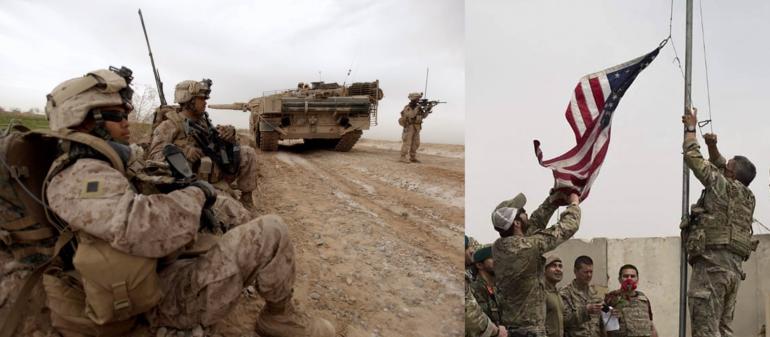As U.S. troops withdraw from Afghanistan, what is the future for the war-torn country?
After 20 years of war in Afghanistan, U.S. President Joe Biden says it’s finally time to bring American troops home.
The remainder of about 2,500 U.S. military personnel still in Afghanistan are expected to depart by September 11.
But, as violent attacks continue, there are fears about the future of the Afghan government and a possible return to power by the Taliban.
To discuss:
- Omar Samad is fmr. Afghan ambassador to France and Canada
- Shuja Nawaz is Distinguished Fellow, South Asia Center at the Atlantic Council
- Michael O’Hanlon is Senior Fellow and Director of Research in Foreign Policy at the Brookings Institution
- Nadia Hashimi is an Afghan American pediatrician, author and women’s rights activist
For More:
The #US completes two to six percent of its withdrawal from #Afghanistan, with the equivalent of 60 cargo planes of material so far removed ahead of the September deadline, officials say.https://t.co/qOKCgvul1v
— Al Arabiya English (@AlArabiya_Eng) May 5, 2021
Taliban fighters reportedly captured a district in northern Afghanistan this morning — part of an offensive against Afghan forces in more than 20 provinces.@charliecbs spoke to Afghanistan's #2 leader who says the U.S. made fundamental mistakes ahead of the pullout. pic.twitter.com/MF3NKoSOvQ
— CBS Mornings (@CBSMornings) May 5, 2021
David Petraeus: US troop withdrawal 'is not going to end the endless war in Afghanistan' https://t.co/AYbp4OqErg pic.twitter.com/JcqCDdGmen
— FRANCE 24 English (@France24_en) May 4, 2021
Progress on women's rights in Afghanistan could be at risk with the withdrawal of US and international troops, even if the Taliban doesn't fully take power, according to a newly declassified US intelligence report https://t.co/YgNos0iUtm
— CNN (@CNN) May 5, 2021
 CGTN America
CGTN America

